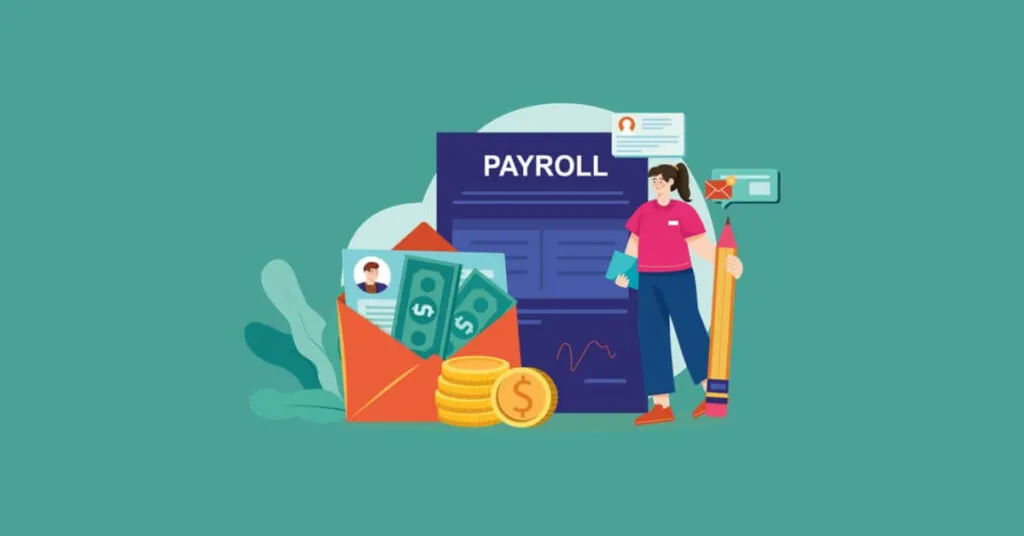How Payroll Software Helps You Onboard Your 1099 Contractor – Unlike W-2 employees, 1099 workers are independent contractors who provide set services and do not need to be directly controlled by your organization. Therefore, look for payroll systems that make it easy to automate workflows and checklists for new hires while maintaining a simple experience across platforms.
Table of Contents
Payroll Software Helps You Onboard Your 1099 Contractor
The best payroll software also ensures compliance with changing laws and regulations. In addition, it alerts you when your reports and taxes are due.
Automated Time Tracking
Many companies use automatic time-tracking software to track employee hours and productivity. It enables clocking in and out of employees via a mobile app or online gateway, lowering the possibility of human mistakes. This software can also help monitor overtime, ensuring contractors aren’t working longer than their contracts require.
However, this software only sometimes provides the detailed information you need to manage contractor payrolls. In addition, it’s often difficult to know whether workers are actually at the office, in meetings, or working on tasks that require them to be physically present. For this reason, you may need a tool that monitors work locations and provides GPS tracking to refine your data.
Another critical feature to consider when selecting a contractor’s time-tracking software is its ability to integrate with payroll. It makes it easy to transfer data packets from the time tracker to payroll without the need for manual transfers that can lead to errors. It’s also a terrific method to do away with the requirement for separate payroll and time-tracking systems., which can be challenging to reconcile in the long run. The best 1099 contractor time tracker, like Rollbyadp.com, integrates with payroll solutions to automate compensation management and filings. It is also compatible with other payroll tools.
Expense Tracking
Contractors have their own set of needs compared to regular employees. To help meet these needs, most software tools have specialized features that allow you to manage contractor compensation management. These features automate sending Forms 1099 to contractors at year-end, for example. The software may also help you track and audit contractor expenses to ensure compliance with regulations.
Some payroll tools include a self-service portal for contractors, making getting paid and accessing their payment history easier. In addition, it allows you to provide better customer support and increase transparency.
Moreover, you can use employee expense tracking tools to record business expenses for employees and contractors in a single dashboard. Then, you can easily categorize these expenses based on the types of expenses that your company can claim as tax deductions. Consequently, identifying possible savings areas and remaining compliant with federal, state, and local requirements becomes easier.
For small businesses, choosing the right contractor payroll software is crucial. Ensure you choose one that meets the specific requirements of your organization.
Payroll
When the data collected in the pre-payroll phase is fed into the payroll system, it calculates each employee’s paycheck. It includes considering their gross income, tax withholdings, and deductions. Once the payroll calculation is complete, bank advice is sent to the corporate bank for salary disbursement. Some systems also allow employees to manage their paychecks through a self-service portal.
A vital feature to consider in a payroll system is its flexibility and compatibility. For instance, you’ll want to ensure the system can integrate with other business systems like HR and accounting software and that it fits your company’s budget well. In addition, if you want to scale your business, consider whether the system will scale with you as it grows and what pricing options are available.
Payroll is an essential component of any business, but it’s often a time-consuming and error-prone process. With a payroll solution, these errors can be avoided, and employees can rest assured that they will be paid correctly. Moreover, with automated processes and regulatory compliance, a sound payroll system can save you from costly fines.
Tax Filing
One of the most time-consuming aspects of corporate administration is payroll processing. It is a complicated procedure with numerous moving elements, and even a single missing decimal point can result in substantial financial penalties. Fortunately, payroll software automates many processes to make managing your staff easier.
As an employer, you must file several taxes and deductions for your employees. These statutory deductions are automatically withdrawn from your employees’ salaries and remitted to government agencies according to a predetermined schedule.
In addition to making these payments, you must submit the 1099-MISC or 1099-NEC form to contractors who receive over $600 in compensation from your company during the year. It ensures that the IRS knows how much you paid your freelancer and that you’ve properly reported this income.
Your demands and budget determine the best payroll system for your organization. Look for systems that can scale with your business, allowing you to configure workflows and checklists as your operations grow. It is preferable to explore a cloud-based option that integrates with your HR management; financial management and hiring tools can help you establish a single source of truth for your company’s data.


